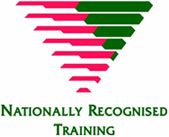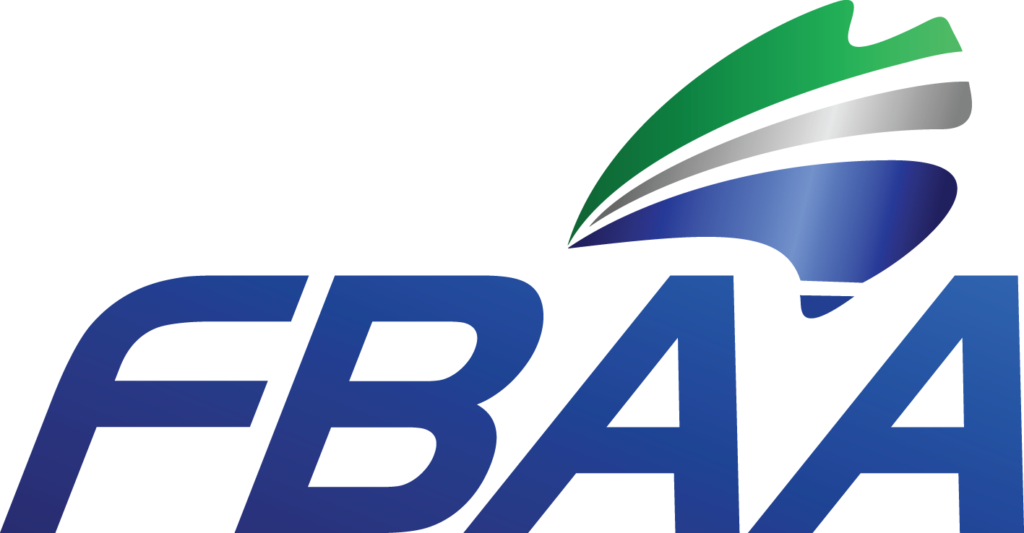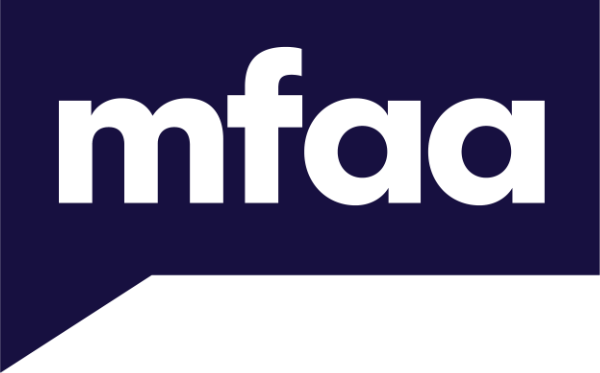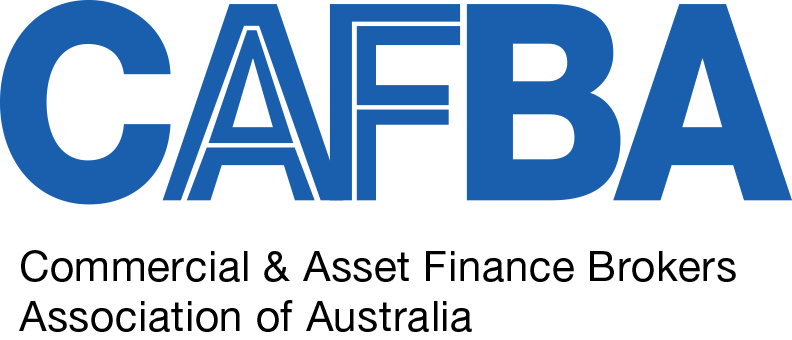FNS50322
Diploma of Finance and
Mortgage Broking Management
Accountants and Financial Planners Stream
This course has been designed for qualified Accountants and Financial Planners who have been operating in their respective industries for the past two years or more.
AAMC Training Group has developed a tailored solution for Accountants and Financial Planners who are seeking to diversify into or change their career to become a Finance and/or Mortgage Broker or work more closely with their broker partners. This stream considers relevant professional skills and knowledge against the qualification units of competence. The course provides a mix of both assessment-based learning and the provision of supporting evidence.
ELIGIBILITY REQUIREMENTS
To be eligible for enrolment into this stream, you must first meet the following criteria;
- Minimum two years of experience as a qualified Accountant or a;
- Minimum two years of experience as a qualified Financial Planner and hold an authorised representative or licensee status.
- Been in a client-facing role within the last twelve (12) months and have adequately demonstrated vocational experience that meets this level of qualification.
Additionally, you should be able to satisfy the following:
- Provide a current CPD statement or record showing the last 12 months CPD points/hours.
- Present a qualified third party who can attest to your vocational experience across components of the course.
- Provide at least two (2) third party professional referrers (i.e. Bank Manager/Finance Broker) that can confirm they have built a working relationship with you.
Complete this Eligibility Application form and send to info@aamctraining.edu.au. A team member will review and contact you. You are not required to provide any testimonials of evidence listed above at the time of eligibility.
Alternatively, complete the Get More Info form to contact a specialist member about your needs.
Course Information
Once you have met the eligibility requirements detailed above and completed the enrolment process, you will have access to the learning material and assessments. The assessments are comprised of:
- Evidence of your prior experience
- Online and written assessments – short answers, quizzes and case studies
- Third party roleplays – video and/or industry qualified third-party observer
- An assessor interview – conducted by an AAMC Training Assessor
You will need access to a phone for the trainer to call and conduct the interview. Access to a computer with an internet connection is also required, as all online and written assessments must be submitted for review within the online learner portal.
Compliance
- Understand the finance industry and the role of a finance broker.
- Identify the various participants, sectors, and roles within the industry.
- Comprehend the legislation and regulations impacting licensed finance brokers.
- Operate compliantly using available systems and supports.
Ethics
- Recognise the importance of acting ethically in finance broking.
- Identify and understand ethical biases and cognitive biases.
- Apply ethical decision-making processes in professional scenarios.
Professional Relationships
- Engage and build relationships with clients, industry participants, and third-party referrers.
- Maintain ongoing business relationships to sustain a successful broking business.
Personal and Professional Development
- Manage personal professional development activities effectively.
- Prioritise and plan daily work tasks and goals.
- Support team members with their work priorities and professional development.
Loan Application
- Understand different loan types and structures, including lender appetite and policy.
- Initiate the loan application journey with clients.
- Manage the loan submission process from start to post-settlement.
Complex Lending
- Understand more complex loan types and structures.
- Manage the loan application process from first contact with a client to post-settlement.
Risk
- Identify
and manage potential risks in maintaining a compliant business. - Apply
strategies for dealing with risks should they occur.
Grow Your Business
- Plan
for business growth by considering target market clients, competitors, and
products. - Develop
and implement promotional activities in line with growth targets.
Each module consists of a range of the following assessment types:
- Written Assessments – short answer questions and case studies.
- Online Quizzes – multiple choice, fill in the gap and mix and match.
- Third Party Role Plays – these can be completed by video or access to an industry qualified third party to complete these with you.
- BSBPEF501 Manage personal and professional development
- FNSCMP501 Comply with financial services legislation
- FNSCUS511 Develop and maintain professional relationships in financial services industry
- FNSFMB411 Prepare loan applications on behalf of clients
- FNSFMB412 Identify client needs and present broking options
- FNSFMB511 Implement credit contracts in preparation for settlement
- FNSFMB513 Present credit options to clients with special financial circumstances
- FNSFMB514 Implement complex loan structures
- FNSFMK515 Comply with financial services regulation and industry codes of practice
- FNSINC411 Conduct work according to professional practices in the financial services industry
- FNSINC412 Apply and maintain knowledge of financial products and services
- FNSINC514 Apply ethical frameworks and principles to make and act upon decisions
- FNSPRM613 Grow financial practices
- FNSRSK511 Undertake risk identification
- FNSRSK512 Assess risks
Diploma enrolments are valid for ten (10) months, while Diploma Upgrade enrolments are valid for seven (7) months.. Extensions of up to three (3) months may be granted upon request. An extension fee will apply.
Although we provide seven (7) to ten (10) months to complete this course, we expect that collection of supporting evidence and completion of gap assessments should take you less time. Based on previous student data from this course stream, and the experience level of the students, we have established that some may complete within 8-12 weeks. This will also largely depend on time available and capacity.
Online (remote self-paced)
Distance learning: online self-paced learning is for students with the capacity and ability to study with minimal guidance. If you are new to the industry and/or study, we strongly suggest selecting the virtual classroom option.
Virtual Class – available for groups of 6 or more.
Please contact one of our team to discuss your options.
Credit Transfer
You may be able to claim credit transfer for a unit/s of competency that you have previously completed with AAMC Training or another RTO. If you have been awarded a record of results or statement of attainment for any of the units detailed in your course, you can request a credit transfer for those units. You must provide a certified copy of your record of results or statement of attainment. Your credit transfer request will then be reviewed, and you will be notified of the outcome by email.
Continued professional development hours are not based on how long it takes to complete your course.
FNS50322 Diploma of Finance and Mortgage Broking Management ACC/FP
CPD Hours – 28
FASEA breakdown:
Technical = 5 hours
Client care and practice = 8 hours
Regulatory Compliance and Consumer Protection = 8 hours
Professionalism and ethics = 7 hours
FNS50322 Diploma of Finance and Mortgage Broking Management ACC/FP – Upgrade from Certificate IV FNS40810 – 40815
CPD hours – 20
FNS50322 Diploma of Finance and Mortgage Broking Management ACC/FP – Upgrade from Certificate IV FNS40820 – 40821
CPD hours – 15
Post Nominal – Dip. FMBM
Payment can be made with credit card during the enrolment process or via the online learner portal, once the enrolment is complete. Alternatively, payments are accepted via bank transfer, the invoice number must be entered as the reference. Access to material and assessments will be granted once funds have cleared in our account.
The FNS50322 Diploma of Finance and Mortgage Broking Management is the highest qualification in the industry. As a broker, you are required to collect CPD hours throughout the year. To keep up to date with your continuous Professional Development, visit our PD course page. Click the link to find out more about our BSB50120 Diploma of Management or view our online CPD courses.
Student support is available via the learner portal, email, and telephone.
Our Student Support and Resources has information available including:
- Additional training and tutorials
- Reasonable adjustment
- Counselling and personal support
- Mental health and wellbeing
- Diversity, equity, and inclusion
About the Mortgage Broking Industry
Finance and Mortgage Brokers perform the following duties;
- prospect for new clients and referral partners;
- Assist clients to obtain loan or lease options that are ‘not unsuitable’ to meet their finance requirement/s by assessing their needs, eligibility and capacity to service the required debt;
- Research, present and negotiate suitable products based on the information presented to meet their clients’ requirements.
- Assist clients requiring further products and services by linking them to the required product or services provider such as; personal protection insurances or financial advice;
- Apply for the loan/lease facility with the chosen lender on behalf of the client, monitor progress of the application through to settlement;
- Provide client after care service to their clients;
- May also run a business which will involve the day-to-day tasks required to set up and run the business.
Mortgage Brokers generally assist clients to acquire loans to purchase, build or refinance residential property for owner occupation or investment.
Finance Brokers generally assist clients to acquire loans and/or leases for the purchase of assets for other business and/or personal use such as equipment, to motor vehicles and business equity. They may also provide assistance to clients acquiring home loan finance.
The finance and mortgage broking industry are regulated by the Australian Securities and Investment Commission (ASIC). The Certificate IV in finance and Mortgage Broking is the minimum requirement for individuals offering third party consumer finance advice on behalf of lenders. Brokers who provide consumer credit advice (for consumer loans) are required to be accredited under National Consumer Credit Protection Act (NCCP). They must either hold an Australian Credit License (ACL) or become an Authorised Credit Representative (ACR) of and ACL. Finance Brokers that do not offer consumer credit advice will not be required to hold an ACL or become an ACR of that licensee. –
New to industry brokers will generally not meet the requirements to apply for their own ACL and not only require an ACR status but also require support, advice, and systems to operate within the industry. Those not requiring an ACR status will also require support to operate a successful business or acquire a suitable employment. Most lenders will not permit brokers to be directly accredited to provide their products to clients. An aggregator can assist a new to industry broker to find their place in industry and operate with confidence. Not only do they provide a license to operate under they can provide access to a range of lenders products and provide the CRM platform (loan lodgement, client management and compliance processes). They arrange lender accreditations, a range of other support including but not limited to; guidance with business set up, client acquisition strategies, risk management, mentoring and networking/professional development events.
Industry associations advocate for the rights of those operating within the industry. They lobby government to keep the industry fair and transparent for it’s member. Becoming a member of one or more industry associations, is a mandatory requirement of many aggregators. And provides other benefits including networking and professional development events, industry regulation updates and guidance.
ASIC also require consumer finance brokers and mortgage brokers to acquire an industry mentor for 24 months. Mentors work with brokers to ensure they are proactively learning on the job across all business functions. They are required by ASIC to not only teach and coach their broker mentees but also to attend client interviews and review several loans applications for suitability with the client and lender. A number of facets including acquiring and interviewing clients, collecting the electing suitable products for their lodgement and tracking of loan applications Mentor – ASIC and the industry require a broker to be mentored for 24 months.
If you are seeking a salaried position, you may also wish to reach out to any of the above for help with finding a suitable mortgage or finance broking business looking to take on new broker recruits or someone in a support role.
For those that have not already spoken to someone in industry, our team are more than happy to refer you to our industry partners, to discuss getting started.
For further regulatory information regarding the National Consumer Credit Protection Act (NCCP) visit the ASIC website link here: National Credit Code | ASIC.
Contact Us
- 03 9391 3643
- Int +61 39391 3643
- Suite 102, 139 Cardigan Street, Carlton VIC 3053
Please select carefully, administration fees may apply if you enrol for the incorrect upgrade.

| Online Complete this Eligibility Application form and send to info@aamctraining.edu.au for approval prior to applying. | Cost | |||
| FNS50322 Diploma of Finance and Mortgage Broking Management – ACC/FP stream 2025 | $997.00 |
| Online Complete this Eligibility Application form and send to info@aamctraining.edu.au for approval prior to applying. | Cost | |||
| FNS50322 Diploma of Finance and Mortgage Broking Management – Upgrade from FNS20-21 ACC/FP 2025 Online | $597.00 | |||
| FNS50322 Diploma of Finance and Mortgage Broking Management – Upgrade from FNS10-15 ACC/FP 2025 Online | $797.00 |
Our Industry Associations:



Have further questions?
Continual Professional Development (CPD) provides each individual with a framework within which they must take responsibility for their own learning. A number of associations have CPD programs in place and the CPD has become a legal requirement in many sectors of the finance industry. Hours are awarded for each activity and these hours are set by the relevant associations or the regulatory bodies pertaining to the relevant profession.
AAMC Training Group is a wholly Australian owned Registered Training Organisation (RTO number 51428), operating nationally and internationally.
Our Finance and Mortgage Broking qualification courses are recognised by the FBAA and MFAA.
